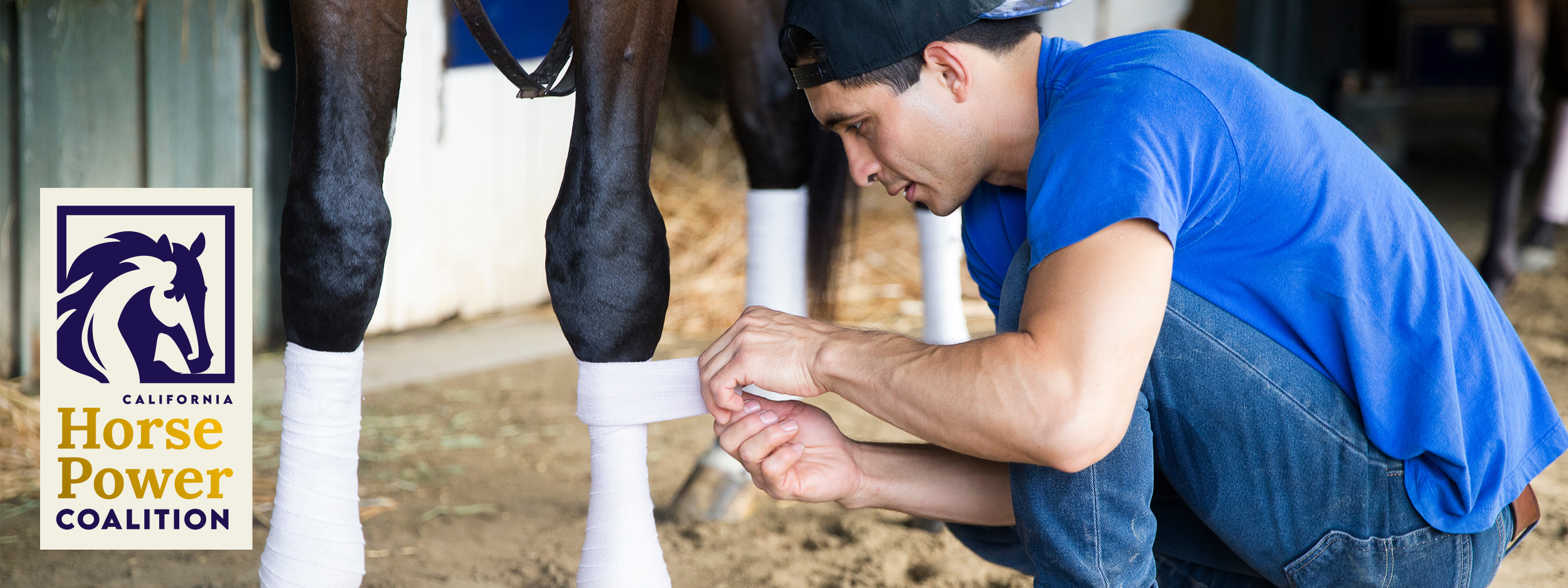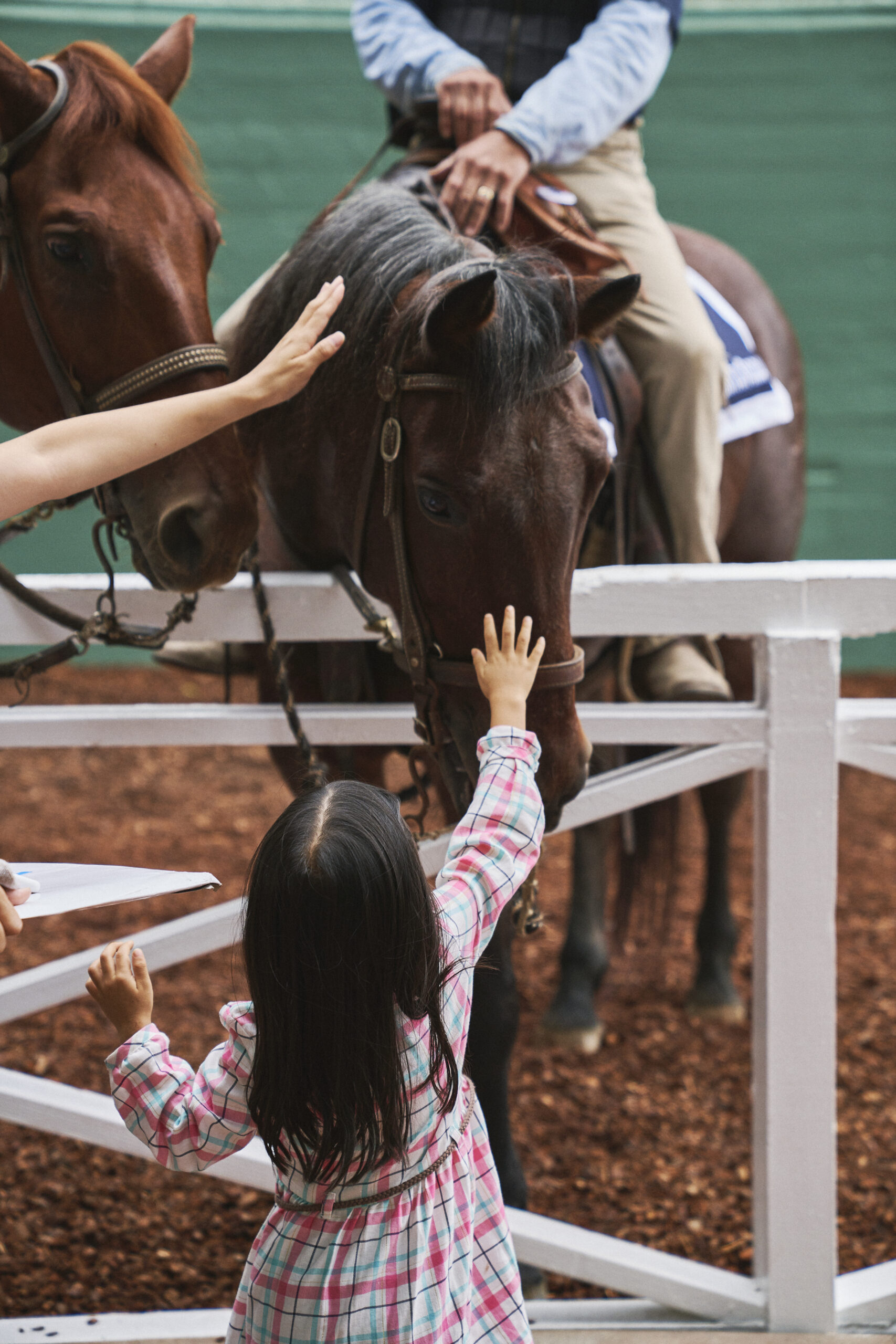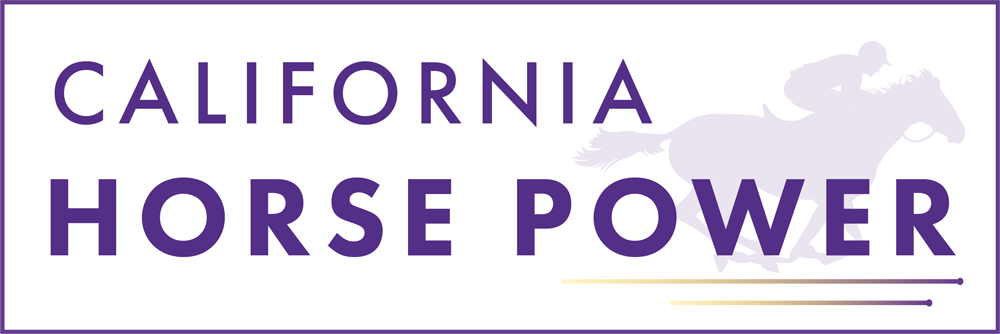
Equine Wellness
CALIFORNIA IS THE GOLD STANDARD IN EQUINE WELLNESS AND HORSE RACING SAFETY
The equine industry provides home, quality care, and an active lifestyle for over 534,000 horses in California. Industry stakeholders— from tracks, owners, trainers, riders, veterinarians and the many organizations that make up the California Horse Power Coalition—are dedicated to ensuring these incredible animals are supported throughout their entire lives.
Our dedication extends beyond basic care. The California equine industry is committed to ensuring every horse receives the greatest care and safety in Thoroughbred racing.
California horse racing is among the most regulated sports in the world; Since 2020, our industry has worked in close partnership with state legislators and the California Horse Racing Board (CHRB) to implement the most stringent legislative regulatory reforms in the nation, including enhanced testing, additional monitoring practices, and a significant investment in racing surfaces and diagnostic equipment.

We are proud that California has the safest racetracks in the country—more than 2X safer than the national average.
And we won’t stop there. We are committed to continuing to develop the best ethical practices to train horses without taking away their animal rights and privileges, always seeking new ways to enhance our safety and welfare standards. That is why California is recognized as the gold standard when it comes to the safety and welfare of racehorses.
The equine industry provides home, quality care, and an active lifestyle for over 534,000 horses in California.
Learn more about our standards to support the quality of life of horses:
MEDICAL ADVANCEMENTS & VETERINARY CARE
California Horse Power Coalition partners have made multi-million-dollar investments in cutting-edge medical technology, including mobile PET Scans, standing MRIs, and Nuclear Medicine to prevent and treat injuries before they become serious. Our work has been so successful that the Horseracing Integrity and Safety Authority (HISA) is using California as the model for national uniform regulatory practices.
Veterinary practices at the tracks are stringent to ensure horses are well cared for every day. Licensed veterinarians take a proactive approach to medical and dental care, examining Thoroughbreds and Quarter Horses regularly to determine racing eligibility and prevent future injury. They also safeguard horse safety by making sure medications are administered appropriately and regulations that prohibit harmful practices and medications are followed.
Visit the National Thoroughbred Racing Association’s website to learn more about California’s pioneering advancements in equine safety at a national level.
STABLE LIFE
Backstretch workers are highly trained to work with horses. Trainers and jockeys are required to take rigorous exams in order to receive a license to practice their craft – trainers often start out working at a lower level until they have the depth of experience to train horses. In California, all assistant trainers, foremen, grooms, hot walkers, exercise riders, and pony riders must hold a license through the CHRB.
Horses live in well-maintained spaces that are cleaned daily and are routinely fed to ensure they remain healthy and strong. These spaces protect them from predators, contagious diseases, parasites, pests, and weather conditions. Horses are fed a fresh, quality diet of grass or hay, with additional nourishment in the form of grains to support their active lifestyle. They also love treats, like carrots, apple slices, and peppermints.
AFTERCARE & RETIREMENT
A racehorse’s career at the track lasts on average between one and five years. The average lifespan of these horses is between 23-25 years, so they spend most of their lives in retirement.
Race horses live long, healthy, productive lives after racing. Some are retrained for second careers as hunters, jumpers, or polo horses, while others go on to become family pets and stable horses. The California horseracing industry has established an infrastructure of organizations dedicated to “aftercare”, the work of helping horses find second careers and homes after racing:
- California Retirement Management Account – a state-based organization which provides funding for rehabilitation, retraining, and retirement of Thoroughbreds.**
- Retired Racehorse Project – an organization focused on placing Thoroughbreds in second careers and serving the farms, trainers and organizations that transition them.
- Thoroughbred Aftercare Alliance – a national organization which accredits, inspects and awards grants to approved aftercare organizations to retain, retire, and re-home Thoroughbreds using industry-wide funding.
**California Horse Power Coalition Partner
CHARITABLE SUPPORT
California’s racing associations support numerous charitable organizations in horse racing that are dedicated to ensuring the quality of life of horses and workers alike. In the past 70 years, millions of dollars have been distributed to charities including:
- California Thoroughbred Horsemen’s Foundation **
- Edwin J. Gregson Foundation **
- Grayson-Jockey Club Research Foundation
- Permanently Disabled Jockeys Fund
- Racetrack Chaplaincy of America
- UC Davis Veterinary Medicine California Center for Equine Health
- Winner’s Foundation **
**California Horse Power Coalition Partner
